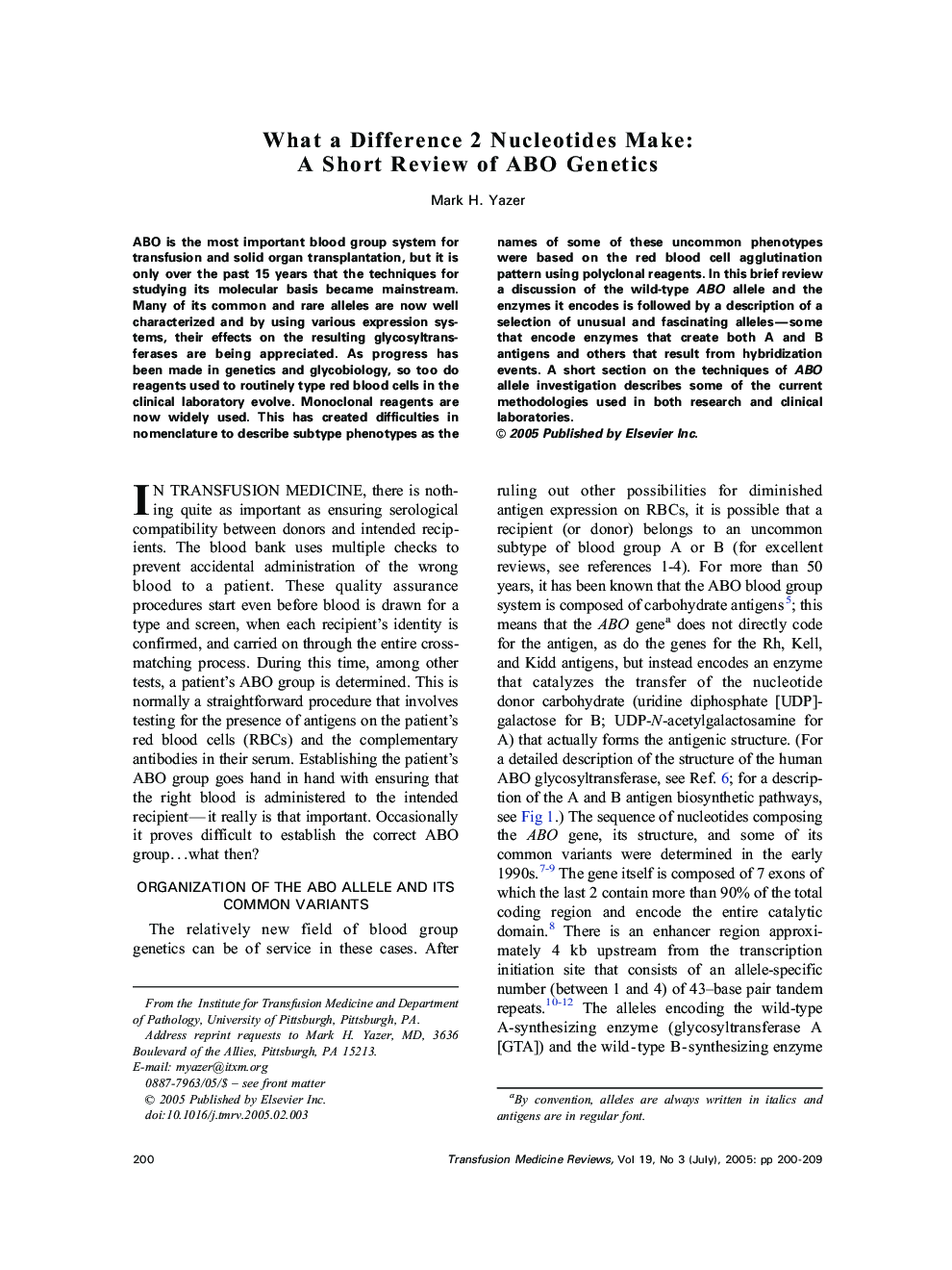| Article ID | Journal | Published Year | Pages | File Type |
|---|---|---|---|---|
| 9259423 | Transfusion Medicine Reviews | 2005 | 10 Pages |
Abstract
ABO is the most important blood group system for transfusion and solid organ transplantation, but it is only over the past 15 years that the techniques for studying its molecular basis became mainstream. Many of its common and rare alleles are now well characterized and by using various expression systems, their effects on the resulting glycosyltransferases are being appreciated. As progress has been made in genetics and glycobiology, so too do reagents used to routinely type red blood cells in the clinical laboratory evolve. Monoclonal reagents are now widely used. This has created difficulties in nomenclature to describe subtype phenotypes as the names of some of these uncommon phenotypes were based on the red blood cell agglutination pattern using polyclonal reagents. In this brief review a discussion of the wild-type ABO allele and the enzymes it encodes is followed by a description of a selection of unusual and fascinating alleles-some that encode enzymes that create both A and B antigens and others that result from hybridization events. A short section on the techniques of ABO allele investigation describes some of the current methodologies used in both research and clinical laboratories.
Related Topics
Health Sciences
Medicine and Dentistry
Hematology
Authors
Mark H. Yazer,
